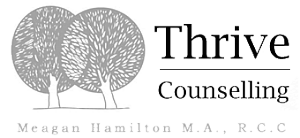There are several theoretical lenses in which I work from based on the issue(s) being presented in therapy:
Solution-focused Therapy (SFT):
Solution focused therapy is based not the premise that you have solved previous issues or problems in the past and that through guided questions and support you can apply those solutions to the current struggle. SFT attempts to look at positive things that are occurring already and therefore focusing on creating confidence and meaningful connections to self. This approach focuses on the client being the expert and on the present moving forward.
Cognitive Behavioral Therapy (CBT):
This approach focuses on dysfunctional thoughts and the feelings and behaviours that stem from those thoughts. CBT involves understanding the behaviours we engage in and the thoughts we have that contribute to feelings of distress, and maintain or worsen the problem areas in our lives. CBT has been thoroughly researched and has been shown to be effective with numerous issues such as anxiety, depression, mood disorders, substance abuse, and eating disorders.
Acceptance and Commitment Therapy (ACT):
Acceptance and Commitment Therapy (ACT) gets it name from one of its core messages: accept what is out of your personal control, and commit to action that improves and enriches your life.
The aim of ACT is to maximise human potential for a rich, full and meaningful life. ACT (which is pronounced as the word ‘act’, not as the initials) does this by:
a) teaching you psychological skills to deal with your painful thoughts and feelings effectively – in such a way that they have much less impact and influence over you (these are known as mindfulness skills).
b) helping you to clarify what is truly important and meaningful to you – such as your values – then use that knowledge to guide, inspire and motivate you to change your life for the better.

